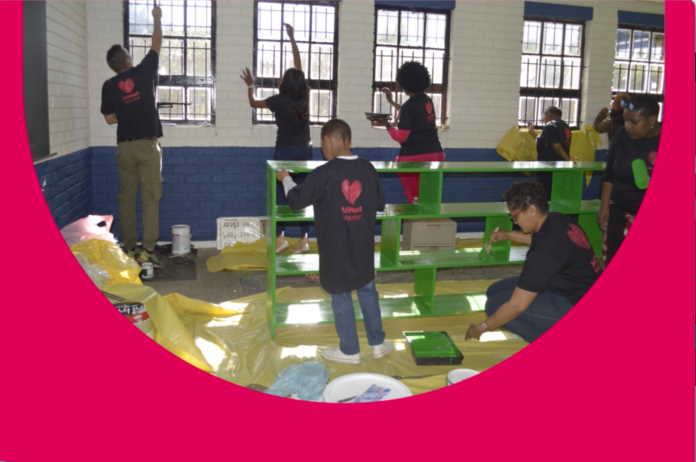Corporate social investment (CSI) is seen as increasingly important but sometimes it seems to miss the point. It’s time to introduce the human dimension into CSI.
In today’s world, environmental, social and governance (ESG) issues are seen as increasingly important at exco and board meetings. That’s as it should be; the King Reports have been pointing out for a long time that corporates exist in, and take sustenance from, the wider community in which they operate. But despite the increasingly large sums of money committed to these projects, might they be running the risk of being too impersonal, of failing to take the human dimension into account?
In the process, they could be missing out on the opportunity to maximise the benefit their investments generate for the community at large and, crucially, their employees.
South African companies are spending ever larger sums on CSI – benchmarking data from Trialogue Knowledge Hub shows that CSI spend in South Africa grew by 5%, already reaching R10.2 billion in 2019 among the 75 companies surveyed.
Building the country we all want to live in will require the commitment, the collective effort and investment of both private and public sector, as well as the giving power of active contributing citizens.
While corporate social spend can be measured in rands and cents, the past two years alone have shown that ‘ordinary’ South Africans know how to rally together behind a cause, roll up their boardroom shirt and blouse sleeves to put their hands to the plough.
Consider the example of what could be viewed as the overnight growth of Community Action Network (CAN) initiative which was started in Cape Town as a vehicle to enable active citizenship and outreach through WhatsApp groups. Largely informal, unfettered by public sector red tape and corporate process, the CAN movement offered ‘ordinary citizens’ the opportunity to initiate and contribute to the change they wanted to see in their communities.
While some subscribed to the ‘minimal requirements’ of joining the country’s CAN, other groups launched their own adaptations in the form of soup kitchens, food garden donations and free Wi-Fi school zones. South Africans responded to the tacit call for help following the permanent shutdown of companies, big and small, mass retrenchments and the resultant deepening poverty and hunger.
The hands-on, hassle-free approach of these groups made room for many people who may have felt that their desire to give exceeded what was available to them in terms of their individual pockets or personal capacity.
In countries such as the United States, they embrace the tradition of practical community self-help, and are more likely to offer non-cash contributions such as volunteering or help in kind.
It’s surely worth considering whether a country with a history as complex and a society as unequal as ours should perhaps consider looking beyond cash (important though it is) to something that is more personal, something that enables the building of bridges between South Africans. Two other interesting trends are worth mentioning in this regard.
One is the growing drive to define and measure social impact of CSI spending globally. A second trend is a growing sense that employees and consumers have a role to play in CSI, with both groups more likely to support companies that accelerate change in harmony with their own choices.
Looking for the personal touch
Of course, the proverbial million-dollar question is how to integrate something more personal into an organisation’s growing CSI strategy.
One initiative which speaks to CSI people-integration is MiWay’s Extraordinary Givers, which launched in June 2022: The programme aims to provide a framework through which employees can connect the company’s CSI spend to causes that are close to their hearts via a formal nomination process.
“As a starting point, we really do our best to employ people who demonstrate heart, especially during the interview process. We want to know that our employees’ values are aligned to ours as a business. We believe that corporates can and should play a role in improving the quality of life for the communities we live and work in, and we encourage our employees to seek out opportunities to do just that,” says Greta Goosen at MiWay.
Crucially, the help provided to the organisation or cause could be financial or non-financial, or a combination of the two. As such, the programme offers ways for MiWay employees to connect with their communities, and for the communities in turn to know they are not alone.
“We know that all too often, people want to give back, but they don’t always know how to go about it, in other instances, they may feel that they don’t have enough time, money or resources to make a difference,” she adds. “This is why we launched Extraordinary Givers, which gives employees the opportunity to nominate causes or charities who could form part of MiWay’s beneficiary family. I just love being part of a team that puts ubuntu to work, at work, and gives everyone the chance to be a philanthropist. At least in our books, anyone who is willing to give can be a philanthropist,” Greta concludes.
MiWay is a licensed non-life insurer and Financial Services Provider (FSP 33970).












